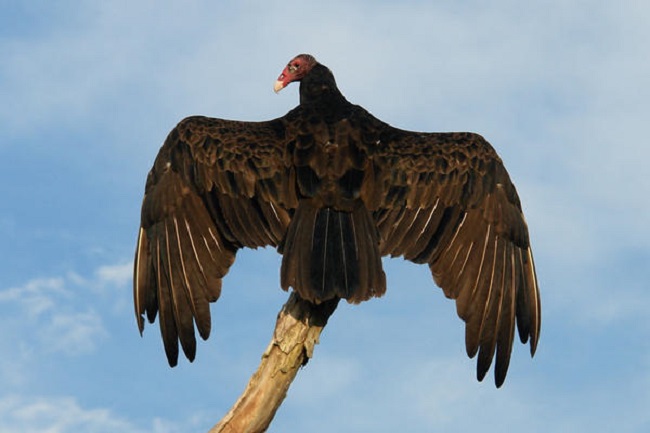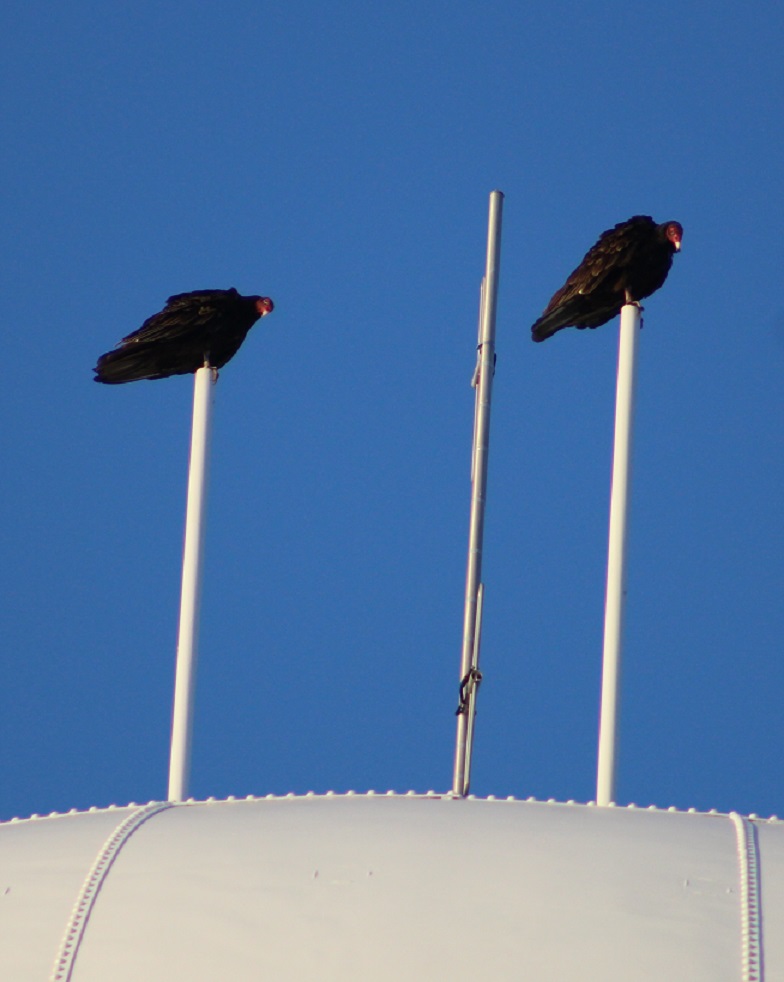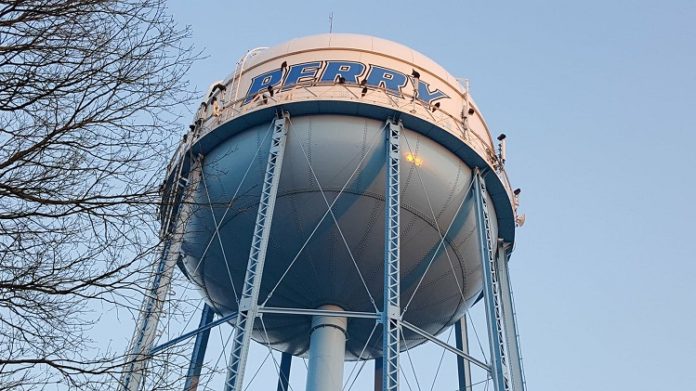
The annual invasion of immigrant turkey vultures is well underway in the Perry area, and the city leaders are looking for ways to turn away the sanctuary-seeking raptors, which seem to like to roost in local sycamore trees and on the Perry water tower.
“We’re working on getting some deterrence,” said Perry Police Chief Eric Vaughn, “and some vultures that have been harvested through our permit hung in the trees.
Protected by the Migratory Bird Treaty Act of 1918, the turkey vultures can only be killed — “harvested” is the euphemism — once the city acquires a permit from the Migratory Bird Permit Office in Minnesota, an office of the U.S. Department of the Interior’s U.S. Fish and Wildlife Service.
“I did apply for a permit again for this year,” said Perry City Clerk Paula Rychnovsky, “and it was granted.” The permit must be renewed annually.
This makes the third or fourth year Perry received a permit to harvest up to five turkey vultures in an effort to deter their roosting in town. The carrion-eaters’ droppings are not a direct health hazard to humans, but the waste does kill vegetation and creates a stench.
“This time of year, we have a lot that move in and out,” Vaughn said. “They tend to congregate even more in larger numbers at the beginning of the season when it’s a little cooler out. They just kind of come and go. They’re migratory birds, so sometimes they stay here for a while. I don’t know if they’re the same birds or they stay here a short time and move on to other places or what.”
The life expectancy of a turkey vulture in the wild is about 15 years, according to avian wildlife specialists, and captive birds have been know to live as long as 30 years.
In a recent discussion during a meeting of the Perry City Council, council members suggested to Vaughn some other ways of warding off the birds, such as making loud noises or hanging shiny objects in the roosting spots, both methods reported successful elsewhere.
“I don’t know if we’ve found the solution to it yet or not,” Vaughn said. “We’re going to try some of those things, but from what I understand it has not been as effective as hanging the carcasses in the trees, but those only seem to work while they’re hanging there. Once they come down, then the birds return.”
Over the last few years, officers of the Perry Police Department shot several turkey vultures outside the city limits, and the carcasses were then presented to the Perry Volunteer Fire Department, which used ladders to hang the dead birds in their fellows’ favored roosting areas around town.
The flocks of large raptors have now returned with the spring, and the city is again addressing this chronic quality-of-life issue.

















